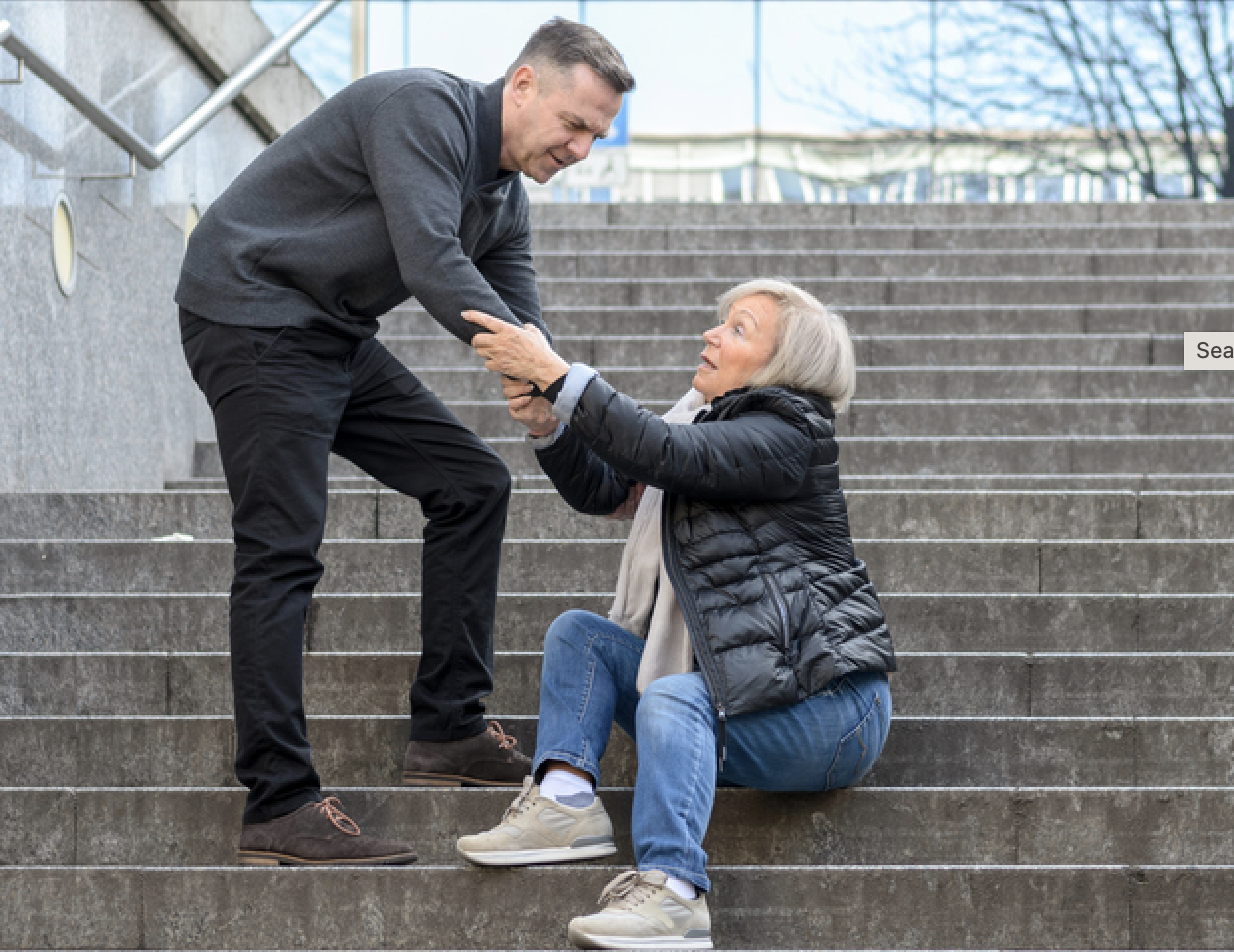Slips And Falls: The Indignities and Injuries From Falling
January 3, 2024

Welcome to 2024. Will it be a productive, prosperous, and happy New Year? Or will injury or embarrassment befall you at some point, as you find yourself tripping, slipping, or otherwise heading to the ground? You know the statistics, or you should at this point, given how often we at agebuzz address the problem of falling as an older adult. One in four older adults falls every year, and one out of every 5 falls results in a serious injury, like a broken bone, head trauma, or some other affliction that could forever change your quality of life, including your mobility or your ability to live in the community. 95% of all hip fractures are caused by a fall, and once you have a fall you are more likely to fall again. And yet amazingly, only ½ of those who have fallen have alerted their physicians to this event. Recently, new draft recommendations were issued by the US Preventive Services Task Force regarding fall prevention for older adults living in the community. The recommendations include a range of interventions to lessen the risk of falling in the home along with exercises to improve balance and strength. While physicians should convey these recommendations to all older adults, they’re especially important for those who have already experienced a fall.
So why are so many reluctant to disclose they’ve had a fall? Given the prevalence and potential consequences of falls, there would seem to be little reason to hide your fall and much to be gained from discussing it with your doctor and investigating causes and next steps. Yet, many have described the humiliation they have felt when finding themselves falling to the ground. For example, writer Dani Shapiro recently described the shame she experienced (along with several injuries) when she found herself falling. Not only was she physically traumatized but her experience revealed how shaken to her core she was. “When we fall, we are consumed with embarrassment and its more toxic cousin, shame. Mortified by our fragility and its accompanying whisper of aging and death.” She goes on to describe the supportive messages and stories she received once she got over her shame and shared her experience on social media. Writer Connie Mason Michaelis also recently shared her experience of falling and her reluctance to admit to the fall and what it might mean about her getting older. “Falling is embarrassing! The typical first response is to look around to see who’s looking (although these days, I’m looking to see who can help me get up off the ground). There is nothing graceful about it.”
More than ever researchers are finding out what puts us at risk for a fall and what we can do to proactively fight back. For example, a study recently published in JAMA Ophthalmology determined that vision impairment due to glaucoma, cataracts, or macular degeneration can raise your risk of falling by as much as 38% in comparison to those whose vision is unimpaired. Certainly, regular eye exams can lessen or minimize this risk. Another recently published study compared arm speed between younger and older adults and concluded that quicker arm speed in younger adults allowed them to regain balance and prevent falls, unlike older adults. This suggests that older adults could be trained to better use their arms when experiencing a fall, and thus potentially avoid serious injury. In addition to these interventions, there’s always more we can do to lessen risks in our home environment. For a good “fall prevention” checklist from the CDC, pick up that throw rug and click here.
Finally, some have been lucky enough not to experience the indignity or injury of a fall but may be consumed by the embarrassment they associate with balance aids such as a cane or walker. Recently, 91-year-old Barbara Morris wrote an essay in The Washington Post about her concern that walkers were “a crutch for weak old ladies- not me.” Once she finally “succumbed” and tried a rollator, however, she discovered its value and that “getting one would set me free.” For more on the benefits and uses of walkers and rollators, look here. For recommendations about the best rollators to purchase, click here. Finally, will Medicare help pay for your walker or rollator? Your doctor can help determine if you meet the Medicare criteria. For more on this possibility, read here.







